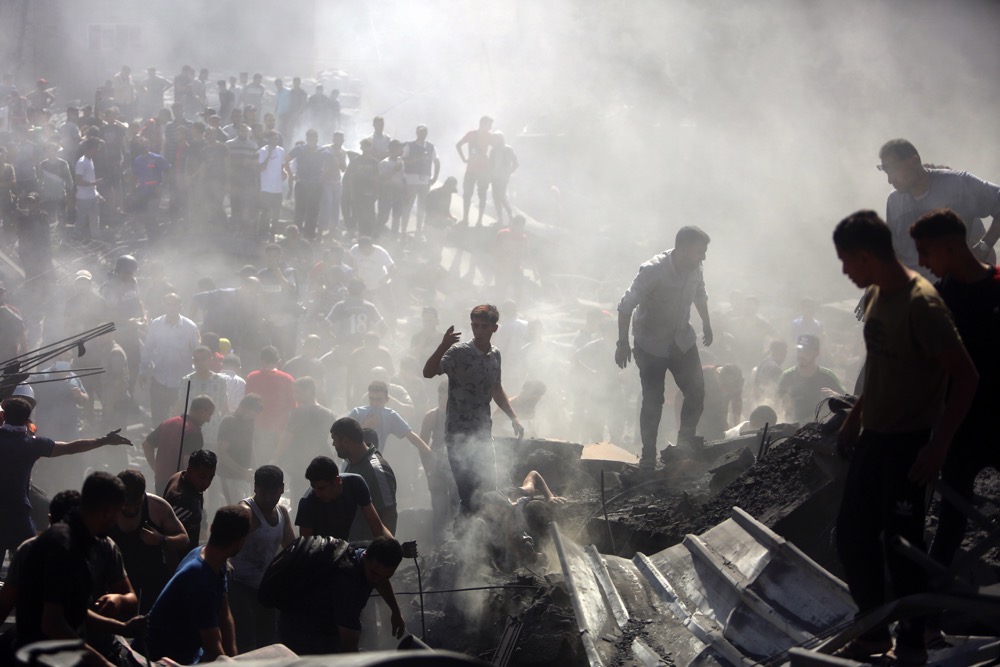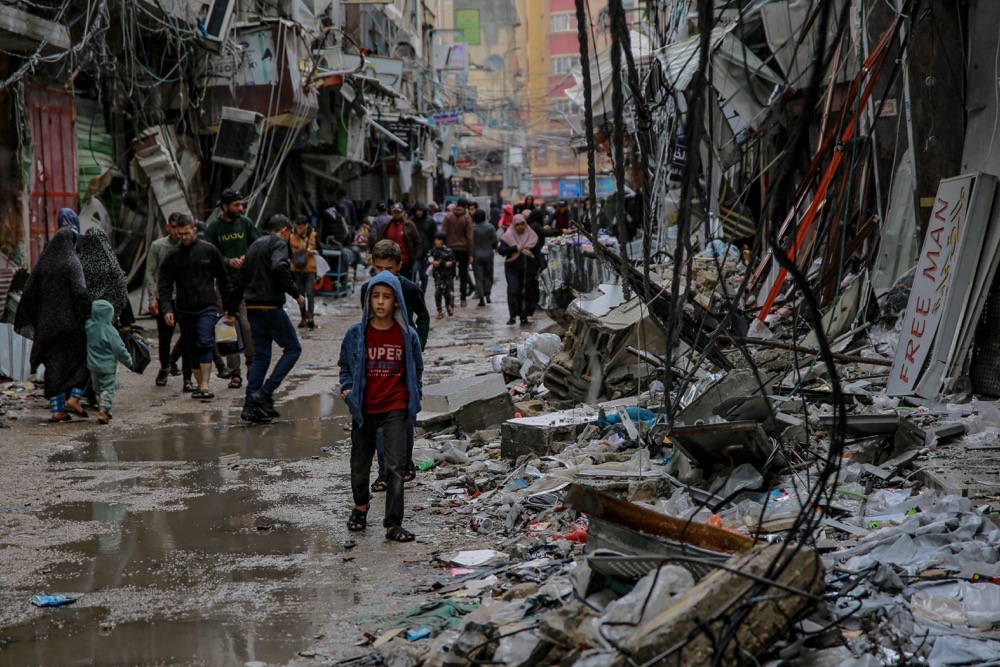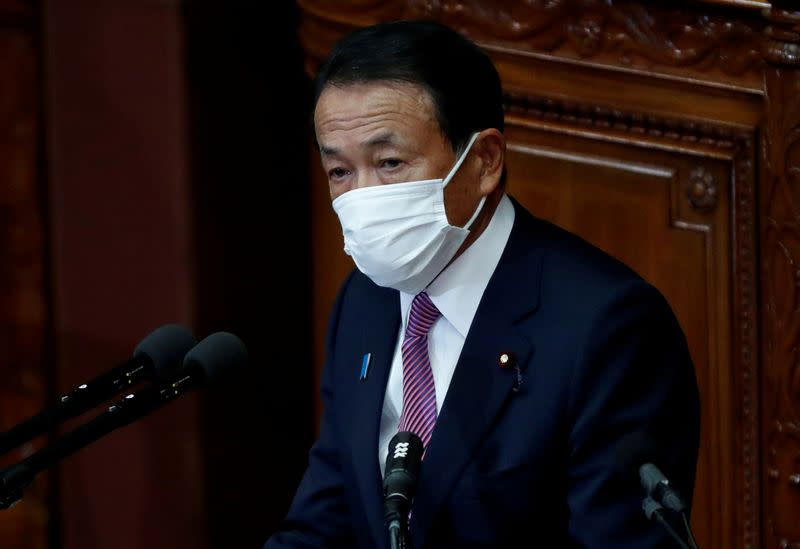Health crisis in Lebanon is ‘catastrophic,’ head of parliamentary committee warns
What chance do war-displaced Palestinians in Gaza have to return to their homes?
LONDON: After an apparently successful pause in hostilities, questions are growing about the fate of Palestinians displaced by the war in Gaza and what hope they have of returning home if and when news of a final cessation of hostilities emerges. See the article : Lanka ‘banking on’ $1 bn India swap deal.
In more than 50 days of constant shelling, the Israeli army has turned much of northern Gaza into a moonscape, with entire neighborhoods reduced to rubble.
The homes, hospitals and schools that remain intact are by no means fit for return, with authorities expected to go house-by-house, building-by-building to determine what level of reconstruction Gazans require.
Yossi Meckelberg, professor of international relations and associate fellow of the MENA program at Chatham House, told Arab News that questions about Palestinian return are “heartbreaking.”
“It’s a good question to ask, but it’s also heartbreaking because of the level and scale of the destruction, and this is before the war is over and we still don’t know if Israel intends to continue the offensive further south,” Meckelberg said.
UK-based conflict monitor Airwars called the bombing the most intense since World War II
“We know that some Gazans who fled their homes in the north have returned or tried to return to see if their houses were still standing… they weren’t.”
In this latest flare-up of violence in the more than 75-year conflict, more than one million Palestinians are believed to have fled northern Gaza, including Gaza City, considered the enclave’s urban center.
The Israeli military may have described the air campaign as inevitable, but underscoring the sheer scale, UK-based conflict monitor Airwars called it the most intense since World War II.
Airwars Director Emily Tripp told Arab News that this assessment was based on a comparison with the nine-month battle for Mosul between 2016 and 2017, which left 80 percent of the city uninhabitable after its end, according to the UN and other experts.
“At the time, the U.S. rated Mosul as the most intense urban battlefield since World War II, and our data shows that no more than 6,000 munitions were dropped in one month,” Tripp said.
“If the IDF’s initial statement of 6,000 munitions dropped in this first week to 10 days is true, then by the time of the temporary pause last week, it is likely that the IDF has dropped more munitions than the coalition in any month of the campaign against Daesh .”

“There are not enough resources to host more than 1.1 million people in the other provinces,” said Oxfam’s head of policy, Bushra Khalidi. (AP)
Speaking to PBS, Youssef Hamash, a Norwegian Refugee Council aid worker who fled south from the ruins of the Jabalia refugee camp, said he saw no future for his children where they ended up and wanted “to go home, even if I have to sleep on the ruins of my house.
A 31-year-old taxi driver, Mahmoud Jamal, told the same broadcaster that when he fled Beit Hanoun in northern Gaza, he “couldn’t tell which street or block I was going through”.
Efforts to keep up with the extent of the damage have been hampered by Israeli restrictions on access to Gaza, but in the second week of November the Office of the United Nations High Commissioner for Human Rights suggested that by this time around 45 percent of the housing stock had been destroyed.
Sources told Arab News that despite the level of damage, it is “not surprising” that many Palestinians in Gaza are wary of leaving their homes, but said it remains the safest option.
One said: “In an ideal world, civilians could go somewhere for a short time and come back, but there is always the concern that saying they should leave for their safety could be interpreted as supporting the claim that Israel seeks to ethnically cleanse Gaza.”
INNUMBERS
• 45 percent of the housing stock in Gaza has been destroyed.
• 6 thousand shells fell in one week in Gaza.
• 1.1 million Gazans without a home or shelter.
According to Oxfam, those who remain number in the hundreds of thousands, even with repeated warnings from Israel to civilians to leave the northern regions and head south.
Oxfam’s head of policy, Bushra Khalidi, herself based in Ramallah, said Israel’s calls for civilians to move south, in the absence of any guarantee of safety or return, amounted to forced transfer, describing it as “ as a grave violation of international humanitarian law that must be reversed.”
“There are not enough resources to host over 1.1 million people in the other provinces,” she told Arab News.
“Shelters, aid and water are already in short supply in the south. There is no guarantee that civilians will find refuge in other parts of Gaza. Those who remain in northern Gaza cannot be deprived of their protection as civilians.
“The US, UK, EU and other Western and Arab countries that have influence over Israel’s political and military leadership should demand that Israel immediately rescind the relocation order.”

The Israeli army has turned much of northern Gaza into a moonscape with entire neighborhoods reduced to rubble. (AP)
Faced with an apparent lack of leadership from those in a position to influence Israel’s actions in Gaza, the Israel Defense Forces appear to be in no mood for leniency after calling on Gazans who have already relocated to relocate again, this time in Muwasi on the coast.
For his part, Meckelberg, noting that when it came to this conflict, there was a tendency for “the temporary to become permanent,” said the question became “where do Palestinian civilians go next?”
With 70 percent of Gaza’s pre-war population already classified as refugees, having been displaced from other parts of Palestine at various stages of the decades-long conflict, Israeli intelligence appears to have responded with reported plans to send them to Sinai.
The proposal, subsequently rejected by the Israeli government, drew sharp condemnation from the Palestinians and Egypt, with Meckelberg citing the latter’s concern about the entry of Hamas fighters.
“We know that what starts as temporary becomes permanent and we know this because 75 years later there are still Palestinians who were displaced in 1946 who are still in other countries and this reality compounds the difficulties of the accommodation of refugees,” he said.
This section contains relevant reference points placed in (opinion box)
Similar concerns were echoed in statements by Arab leaders. Jordan’s King Abdullah was blunt, saying “there should be no refugees in Jordan,” while the country’s foreign minister warned Israel not to leave a mess for other countries to clean up.
Meckelberg said that “if governments suspect that this war is an attempt by Israel to ethnically cleanse Gaza,” it is not surprising that they will not be very eager to help.
However, he stressed that in the immediate term it was “paramount” to find safe harbor for the civilian population, but given the surrounding politics and the availability, or lack thereof, of much-needed humanitarian aid, this had proved difficult.
Citing international humanitarian law, Khalidi said no country could deny those fleeing war access and safe haven.
However, she also said states must be aware that – given the Palestinians already displaced in Gaza and denied their right of return by Israel – any support they offer could inadvertently play in the hands of actors who want to ethnically cleanse the enclave.

“There is no guarantee that civilians will find refuge in other parts of Gaza,” said Oxfam’s head of policy, Bushra Khalidi. (AFP)
With more questions than answers, Meckelberg said a complete rethinking of how such situations are managed and the duties and rights of those involved in conflict is needed.
“As far as the people of Gaza are concerned in the present, winter is not coming, it is already there. If you have one case of heavy rain pouring into the sewage system that before the Israeli bombing was struggling, what you’re left with is a huge health crisis,” he said.
“In the face of this, there must be a concerted international effort to set up refugee camps, to supply them with everything they need and to keep people safe.”
Right now, he said, we are witnessing a “very unfortunate situation”, but stressed that international support must be there when the fighting ends, with Gazans helped both in rebuilding their homes and in cases where have been moved, to provide back to them.
Khalidi added: “One should have the right to live safely and peacefully in one’s homeland.”




Comments are closed.